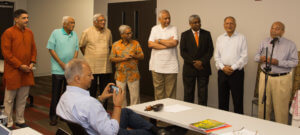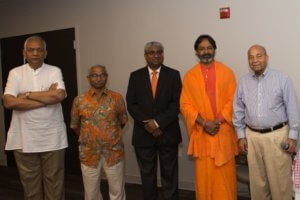
Latest Blog Varna Jati & Caste – Part 1
Annual Giving Campaign - 2025-2026 is under way. Donate today by Clicking Here, and help us reach our goal.
So far $7,265 has been raised out of a target of $ 3 Million. Click Here to donate today and help us reach our goal.












